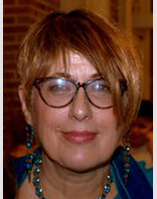By Jeanette Friedman

SOUTH ORANGE, New Jersey — The auditorium at Jubillee Hall was filled November 14, as curious Seton Hall students, Jews (including Holocaust survivors and educators), Muslims and Christians came to hear Imam Abdullah Antepli describe how a trip he took to Auschwitz last August changed his life.
He was one of the imams from the United States, all with large followings, who joined Reform Rabbi Jack Bemporad, of The Center for Interreligious Understanding in Carlstadt, New Jersey, on a trip to Poland and the death camp. The trip was the brainchild of an Orthodox Jew from Washington, DC, a former Republican presidential advisor and a professor of law at Catholic University, Marshall Breger.
The imam was born in Turkey, and after a few ice-breaking remarks, got very serious when he admitted that he was a recovering antisemite. He described how the myths in the forgery, The Protocols of the Elders of Zion, poison millions of children in the Islamic world. The book is given away for free in Islamic countries and has been translated into 14 Arab dialects. “It is very insidious,” he said. “It convinced us that there is something vile about the religion and something inherently wrong with Jews and Judaism, and I hated the Jews.
“…God in his mercy freed me from that hatred, with the tolerance and patience to take the poison out of my system. And I drove in the opposite direction as fast as I could.”
The imam then described his emotional journey as he discovered what Judaism was really about, but realized that somehow, there were still barriers. He couldn’t reach full understanding, and long before he and his colleagues took the trip with Bemporad, he realized that to understand the collective Jewish psyche was not an easy thing. He had taken several trips to Israel and Turkey with his students, and still something was still “missing.”
He described his journey through Holocaust literature and film and thought he knew something about Jewish pain and suffering. “But the trip was a slap in the face for all of us. We never understood the depth of human failure. If God ever shed tears, it would have been in this case…I realized how human inventiveness and genius, successfully organized for decades, the propaganda. Millions of people were unborn, and we never realized how efficient it was. For six years people worked to kill people as efficiently as possible. In Auschwitz it took just three hours to turn them into ashes.
“Since then, I have lost my taste for many things. We saw hills of human hair…One of the most beautiful things I have in my life is to touch my daughter’s beautiful hair. Now I cannot take pleasure from it because I see those hills of human hair…”
He learned that Muslims in the Balkans and in Albania saved Jewish lives, and empathized with those in the audience who were witnesses to the destruction of Ashkenazi life in Europe. “…everything is gone…in the lifetime of many people present here.”
He then issued a call for action, for solutions, for antidotes. “We can’t prevent it with lip service. Holocaust denial is against Islam …it’s another face of evil… I hear people say, ‘I am glad it happened and someone should finish the job.’ We have to try hard to convince everyone how unethical and immoral this is.
“Moderate people have to become radical peace makers. My hope is to mobilize the lazy moderates in our societies, to give them a push to eliminate sources of hate from society and fulfill the faith of the Abrahamic traditions for all our families.”
Breger described how mainstream American Jewish organizations didn’t approve of the imams he and Bemporad brought to Poland, which did not surprise him. “Why should we bring imams who already know the truth? The fact was we needed to show Auschwitz to doubters and deniers.” Instead the two obtained funding from the Konrad Adenauer Foundation in Germany, which gave the mission increased credibility. U.S. Ambassador Hannah Rosenthal the special envoy on monitoring and combating antisemitism, and U.S. Ambassador Rashad Hussain to the Organization of the Islamic Conference, also joined them on the trip. When the men returned, they briefed Congress on the changes in their attitudes toward Holocaust denial and antisemitism.
The colloquium was sponsored by The Sister Rose Thering Fund for Education in Jewish-Christian Studies, The Department of Religion, The College of Arts and Sciences, and The Whitehead School of Diplomacy and International Relations at Seton Hall University.
*
Friedman is the Greater New York Bureau Chief for San Diego Jewish World. This articleappeared on newjerseynewsroom.com